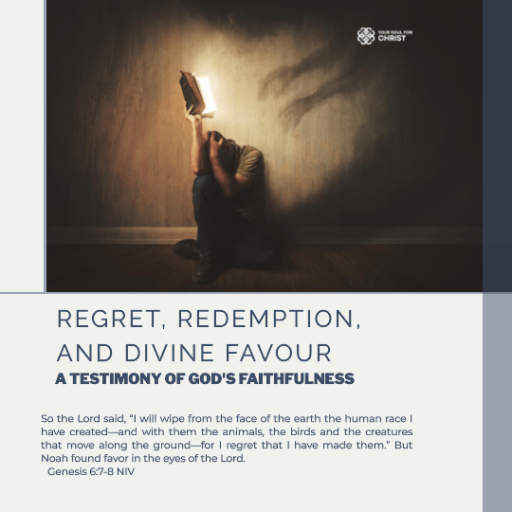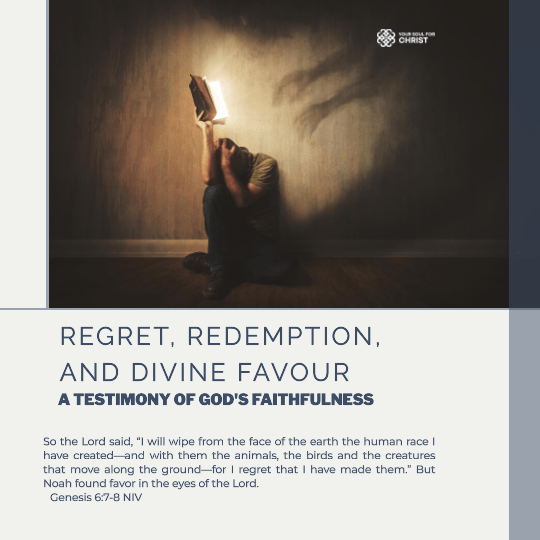So the Lord said, “I will wipe from the face of the earth the human race I have created—and with them the animals, the birds and the creatures that move along the ground—for I regret that I have made them.” But Noah found favor in the eyes of the Lord.
Genesis 6:7-8 NIV
What joy is there in considering the works of one’s hands and pronouncing a judgment of destruction upon them? How sorrowful it must have been for the Creator to contemplate the fate of His own creation. In Genesis 6:7-8, we witness a profound moment in which God, who initially declared His creation as “very good,” now faces the agonizing decision to cleanse the Earth. This divine reckoning prompts us to ponder what could have led to such a drastic step. What has transpired to make humanity stray so far from its original state of perfection? How did what God pronounced as very good now become an object of regret?
The phrase “…human race I have created” clarifies that they were not gifted to God; He created them, declaring them as “very good”. Meanwhile, the Bible provides insight into the circumstances that led God to this conclusion. It was undoubtedly a difficult decision but seemingly a necessary one. Moreover, I would like to remind you that if God could pass such a judgment concerning all of humanity, He could do the same for an individual who has strayed from God’s purpose.
We can trace humanity’s fall from grace back to the garden of Eden. Since that fateful day, the human race has been spiralling downward, succumbing to wickedness and evil. As recounted in Genesis 6:5-6, “The Lord saw how great the wickedness of the human race had become on the earth, and that every inclination of the thoughts of the human heart was only evil all the time. The Lord regretted that he had made human beings on the earth, and his heart was deeply troubled”.
However, there is hope in the midst of destruction. Despite the severity of the situation, God did not embark on this drastic course without offering an opportunity for redemption. It was as if He initiated a search, seeking a remnant through whom a renewed humanity could arise. Can you imagine the dire consequences if no one was found worthy of this purpose? Thankfully, there was a glimmer of hope.
In this moment of darkness, Noah emerged as the exception. “But Noah was different. God liked what He saw in Noah,” as stated in Genesis 6:8 (MSG). Heaven rejoiced at the discovery of a man whose life found favour in the eyes of the Lord. It was good news indeed. However, I think it is important to consider a few issues in this regard. What was it that distinguished Noah from the rest? What did God see in him that brought joy rather than regret?
Before we explore the qualities that set Noah apart, I invite you to engage in a moment of self-reflection. Consider your own life in the light of God’s Word. If God were to search for a person to fulfil His purpose where you currently stand, would He find satisfaction in examining your life? Consider your family, church, career, office, or any other place you find yourself. Would God find your life pleasing? Would He not regret the blessings and resources He has granted you? Are you making the most of the opportunities He has given you? Will your life be a pleasing offering to your Creator?
In this passage from Genesis, we witness God’s solemn decision to bring a flood that would cleanse the Earth. His regret is palpable, and it’s a poignant reminder of the consequences of humanity’s fall from grace. The story of Noah stands out as a beacon of hope in these dark times, showing that even in the face of divine judgment, an individual can find favour with the Lord. The call to self-evaluation is an opportunity to align our lives with God’s purpose and seek His favour. It is beckoning us to become instruments of His divine plan.

